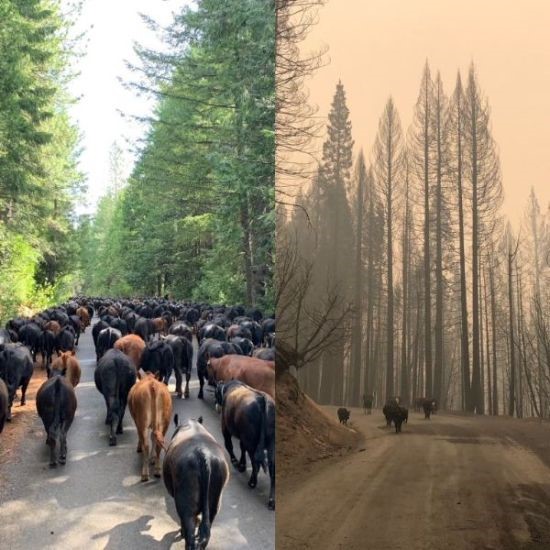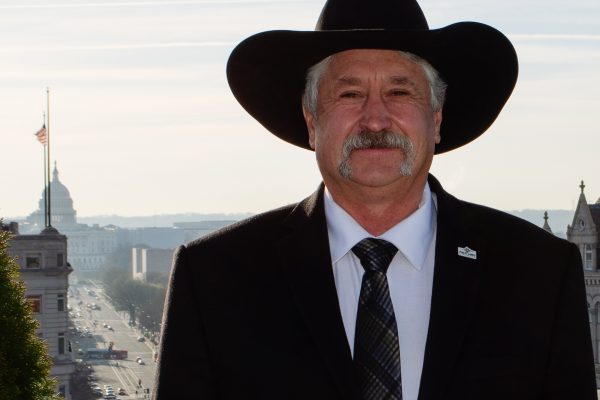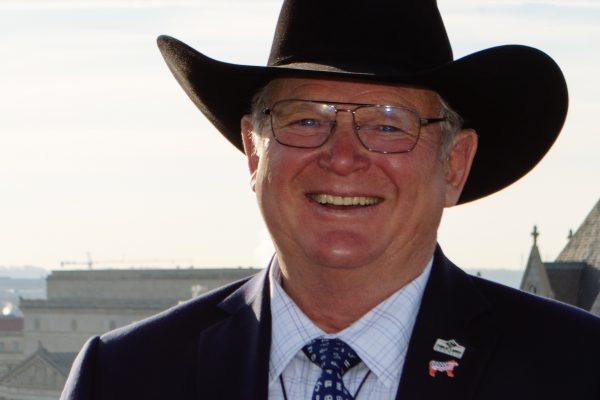WASHINGTON (April 29, 2021) – Today, fifth-generation California cattle producer Dr. Dave Daley testified before the U.S. House Subcommittee on National Parks, Forests, and Public Lands. Daley shared his expertise on wildfire management as an experienced cattlemen, longtime educator, and survivor of the 2020 Bear Fire in Butte County, Calif.
He serves as Chair of the National Cattlemen’s Beef Association (NCBA) Federal Lands Committee and Chair of the Public Lands Council (PLC) Ecosystem and Environment Committee.
The hearing addressed the intersection of wildfires and climate change, and explored ways to make our Western forests, grasslands, and rangelands more resilient. Drawing on his personal experiences and decades of knowledge handed down generationally, Daley spoke on controlling the risk of wildfire through active land management practices like reseeding and prescribed burns.
In the Bear Fire last year, Daley lost approximately 80 percent of his cattle herd. Most animals were killed in the fire, others had to be euthanized due to their injuries, and tens of thousands of acres of rich, healthy soil and plant life was incinerated.
“As a rancher, and an expert in animal science, I can tell you that the nimblest tool to address dense grasses in the most protective way is to graze these landscapes,” said Daley. “Forests, rangelands, and grasslands that are at high risk of catastrophic wildfire are not resilient. The cycle of fuel loading, catastrophic wildfire, and loss of biodiversity decreases carbon storage potential in the soil and plant community. In addition to the loss of storage potential, fires release immense volumes of carbon. The California Air Resources Board estimated that the state’s fire in 2020 emitted approximately 112 million metric tons of carbon dioxide, roughly equivalent to more than 24 million cars.”
He also warned about the dangers of a one-size-fits-all regulatory approach at the state or federal level and stressed the importance of empowering local ranchers, loggers, and land management experts on the ground who understand each unique ecosystem.
“The world is changing. The climate is changing,” added Daley. “We live in a time where communities are expanding further into forested areas, while the residents themselves are further removed than ever before from the direct knowledge of the farm or the wilderness.”
The hearing came as severe drought conditions across much of the West threaten to make the 2021 wildfire season one of the most destructive in recent memory.
“Dave Daley’s heartbreaking testimony of all that was taken from him by the Bear Fire reveals the dangerous risk that wildfires can post to entire ways of life in the West,” said Rep. Doug LaMalfa (R-CA-1). “I am glad to be able to introduce Dave to the subcommittee, and I hope that his personal story will underscore to lawmakers from across the country the importance of coming together to take bipartisan action to better manage our Western forestlands.”
“Political showmanship must not get in the way of the very people we are here in Congress to serve. Hardworking Americans like Mr. Daley are the backbone of our economy and way of life, and they are the ones who live out the consequences – both good and bad – of the policies we create in D.C. We cannot legislate effectively in a political bubble,” said House Committee on Natural Resources Ranking Member Bruce Westerman (R-AR-4). “We need experience and expertise like Mr. Daley’s to give us perspective on how we can improve our environmental policies. I thank Mr. Daley for taking the time to come testify before the committee today, and look forward to working with him more in the future.”
Dr. Daley has worked with PLC and NCBA and his home-state association, the California Cattlemen’s Association, to develop and improve policy to use grazing to achieve resource management objectives. Cattle and sheep grazing can be an effective tool to create fuel breaks – interruptions in dense fuels that seek to change the way a fire moves in high-risk ecosystems. By clearing underbrush, grazing slows the spread of fire on the ground and allows the fire to be a normal part of the ecosystem by opening cones for seed distribution and releasing water resources back into the ecosystem.
“Dr. Daley and other ranchers who make a living on and care for our forests and rangelands are the best qualified experts to help inform policy. On both private lands and public grazing allotments, cattle producers have been able to cultivate healthy ecosystems that leverage sound business practices into increased capacity for carbon storage, improved water quality, more biodiversity, and increased resiliency to wildfires,” said PLC President Niels Hansen. “As Congress implements policy to support President Biden’s climate goals, we strongly urge lawmakers to consult Americans like Dr. Daley, who have the firsthand knowledge to work toward sustainable solutions – and, have the firsthand knowledge of the consequences of misguided policy.”
NCBA and PLC have long supported the use of grazing to prevent the buildup of high-density grasses, reducing the risk of catastrophic wildfire and positively impacting ecosystems across the West.
###
Watch the hearing here.
Read Dr. Daley’s testimony here.




